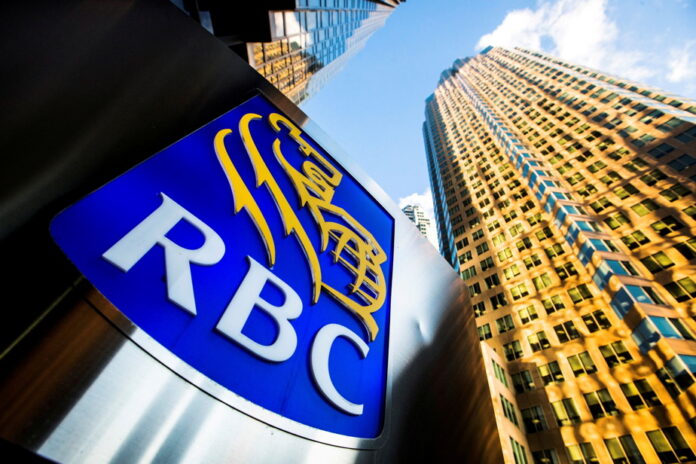(Montreal) The Caisse de dépôt et placement du Québec (CDPQ), one of the shareholders of the Royal Bank of Canada (RBC), opposes RBC publishing absolute greenhouse gas reduction targets . This position is denounced by environmental organizations, which also point out that the Caisse has often voted against environmental resolutions at shareholder meetings in the past year.
The CDPQ, which has set itself the goal of contributing “to the decarbonization of the entire real economy and to achieving a carbon neutral portfolio by 2050”, was among the shareholders invited to comment on a series of proposals last week at RBC’s annual meeting.
The New York City Comptroller, which represents the interests of a pension fund, proposed that RBC set “absolute greenhouse gas emission reduction targets” for its gas financial activities, oil and electricity, for 2030.
The US investor group argued that “transformation” of these three sectors is “critical to successfully keeping the temperature below 1.5°C”, as required by the Paris Agreement.
However, the proposal was rejected by 82% of the votes of RBC shareholders, including the CDPQ, which deemed it “too restrictive”.
“We voted against the proposal…because supporting absolute targets is not viable for a financial institution and discourages decarbonization efforts,” said CDPQ spokesperson Kate Monfette.
“What is blocking is the question of targets in absolute value”, according to Thomas Estinès, president of the Responsible Investment Group (GIR), which advises companies on responsible investment strategies.
GHG emission reduction targets can be expressed in absolute values or in carbon intensity.
Absolute targets refer to a decrease in total tonnage of GHG emissions while “intensity” targets represent a reduction per unit of production and therefore allow a company that increases production to do the same with their GHG emissions .
“At the moment, RBC discloses carbon intensity targets, but best practices call for lower emissions in absolute terms,” said Thomas Estinès, whose company has advised the CDPQ in the past.
He added that among Canadian banks, “only BMO has adopted absolute targets, that should be the norm, but so far it’s exceptional.”
According to him, “there could be a beginning of mistrust coming from individuals outside the financial world, because seen from the outside, we can see that there is a lot of talk, but that actions are slow to take place and that it is is a bit business as usual”.
The Royal Bank of Canada (RBC) was the largest funder of fossil fuel projects globally in 2022, according to data from the latest Banking on Climate Chaos study, released Thursday by a consortium of environmental groups.
The Royal’s financial aid to the fossil fuel sector is estimated to have reached US$42 billion last year.
Asked about the role that the Caisse de dépôt et placement du Québec should play, as a shareholder, in the decarbonization of RBC’s activities, the spokesperson for the CDPQ replied that the Caisse “encourages RBC to enhance its climate targets”, stating that “the Caisse had voted in favor of several climate and social proposals”.
Kate Monfette was referring in particular to two proposals made by RBC shareholders last week.
The first called for “the phasing out of lending and underwriting activities aimed at fossil fuel exploration and development.” The CDPQ voted in favor of this proposal, which however obtained only 7% support.
The second proposal called for CBR to incorporate the “free, prior and informed consent” of Indigenous peoples into its policies and practices.
The CDPQ voted in favor of this proposal, which was however rejected by 73% by the shareholders.
The positions of the caisse concerning these two proposals were welcomed by the Coalition Sortons la Caisse du Carbone, which underlined, in a press release, that it has been asking the Caisse de depot et placement du Québec for several months to use its power to shareholders and to vote in favor of the climate at general meetings of shareholders.
“We are pleased that our work and that of our partners is starting to bear fruit,” said Sébastien Collard, spokesperson for the coalition.
However, he added that “it is unacceptable that the CDPQ does not require ambitious targets from the companies in which it invests, and it must also lead by example by adopting targets that respect the climate science”.
The coalition calls on the CDPQ “to show leadership on this file, just as the New York City Comptroller’s pension fund is doing.”
For Greenpeace Canada spokesperson Patrick Bonin, by voting against absolute reduction targets, the fund “unfortunately has just sent a very bad message and still has a long way to go.”
La Caisse is a member of Race to Zero, a United Nations campaign that requires its signatories to set “an intermediate target to be achieved over the next decade, which reflects a maximum effort to reach or exceed a fair share of global reduction. 50% of CO2 by 2030″.
Despite this commitment, the CDPQ has repeatedly voted against environmental resolutions proposed by other shareholders in 2022 according to an analysis by Investors for Paris Compliance (I4PC), a group of Canadian investors.
According to this study, the Caisse voted 67% against environmental resolutions presented at the annual meetings of Canadian banks as well as companies in the hydrocarbon, manufacturing and retail sectors.
The CDPQ will soon release its Stewardship Investing Report for the fiscal year ending December 31, 2022.















